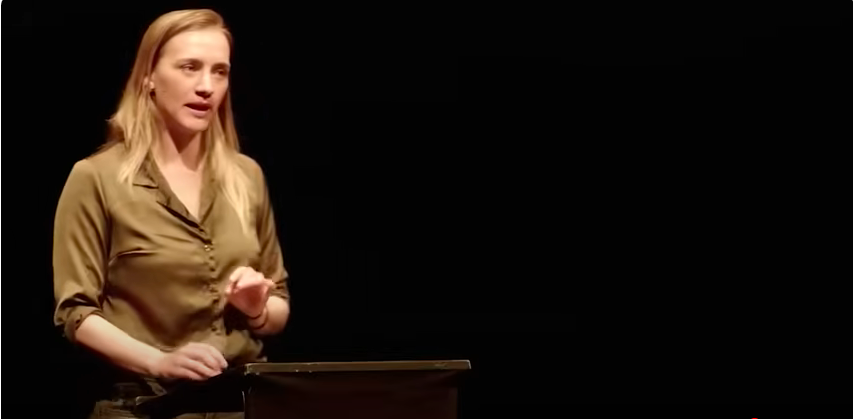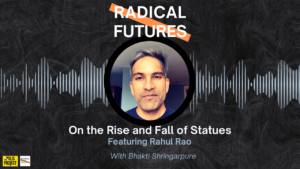
The War Economy is not the end of Neoliberalism, it’s the next phase

DiEM25 (@diem25.org), the pan-European political movement co-founded by Yanis Varoufakis, and The Polis Project, which documents global communities in resistance at the intersection of politics, art, and culture, are thrilled to announce a new collaboration.
Together, we are committed to addressing urgent political realities by building and strengthening our communities through shared knowledge and solidarity.
This partnership seeks to amplify the work of both organizations through co-publishing, joint initiatives, and engaged dialogues—fostering deeper, more inclusive conversations on contemporary politics, justice, and resistance. From empire and colonialism to systemic inequality, we aim to provide fresh, cross-border perspectives on the most pressing issues of our time.
In solidarity, we will promote diverse voices, challenge dominant narratives, and imagine alternative futures grounded in justice, care, and collective action.
The following is an excerpt from Grace Blakeley’s speech at the DiEM25 conference “WTF Happened To Europe?”, held in Brussels on March 7th 2025.
Hi everyone, it’s great to be here with you tonight. And it’s great to hear that the war economy is back because that means neoliberalism is over, right? We’re gonna get a big state back. We’re going to get military Keynesianism, and we like Keynesianism, don’t we? Because that’s social democracy. This is all very exciting. It’s literally the end of neoliberalism.
That’s obviously not what I really think, right? My most recent book, Vulture Capitalism, dismantles this claim, this idea that capitalism is a free market system, that the state and the market are two separate spheres of power, and that, when you get more state, that means less market and vice versa. It looks at the neoliberal movement and its claims, its claims that they were coming in to deliver on a promise of human freedom, to free up markets, shrink the state, allow you all as individuals to achieve the heights of what you could possibly think, because all of the horrible bureaucratic stuff would just get out of the way, and the market would allow you to rise to the top. We really need to stop believing what these guys tell us about what they want to do, because we know that they speak in a kind of doublespeak.
Neoliberalism was never about shrinking the state or freeing the market. Neoliberalism was about crushing opposition, restoring order and hierarchy, and augmenting the power of the ruling class over everyone else. It emerged in a very particular moment.
It emerged in a moment of disorder, of ungovernability. We had societies all over the rich world, all over Europe, that were rocked by industrial disputes, powerful labor movements shutting down the whole economy, peace movements, environmentalists, standing up to authority and saying, you don’t get to tell us what to do. We don’t accept your authority. We don’t accept your legitimacy. Neoliberalism was about restoring the discipline, the order, and the authority of the ruling classes over the rest of society. It was about reminding everyone else who was in charge.
That’s why our governments broke up protest movements. It’s why in my country, the UK, Margaret Thatcher used the ruthless power of the British state to crush the labor movement, sending unemployment through the roof, literally sending police to beat striking miners. Do you think that stopped because we’ve got the war economy and military Keynesianism? Do we feel like we live in a world where we have this dream of freedom and individual effort, and a state that is stepping back and allowing us to do our own thing? No, of course not.
The war economy goes hand in hand with the extended and expanded crushing of the opposition, with the deepening of the control of the ruling class over every area of life. If you don’t believe me, go and ask people living in Russia. There was a columnist the other day in the UK who wrote in the Financial Times, if Europe wants to build out the warfare economy, it’s going to have to shrink the welfare economy. You know who did that really well? Vladimir Putin. You know what else he had to do to crush dissent that would come out when poor people start to see their pensions cut, their teachers’ salaries cut? He didn’t cut the salaries of the people who exist to crush that form of protest. That is the route that we are potentially, that Europe is potentially going down.
The problem was never that the state was too small or too big. The problem wasn’t an imbalance between the state and the market. The problem was and is an imbalance of power between people and elites, or as the old-school Marxist dhimmi would say, between labor and capital.
The war economy is a great example of how capitalism really works. It’s based on deep cooperation between the public and private sector in pursuit of augmenting the power, the imperial power of particular governments and obviously the wealth and power of individual capitalists.
One example that I talk about in my book and a company that’s going to benefit from the expansion of the war economy is Boeing. Some of you may remember a few years ago the 737 Max disasters when two Boeing planes nose-dived out of the sky, killing nearly 350 people. You might remember recently that Boeing whistleblowers have been in the news because they’ve been in court testifying against the company, and many of them have died. You might have seen that a door blew out of a Boeing plane mid-flight.
All of this stuff was basically shoddy engineering that came about during the shareholder value revolution of the 1980s. Corporate greed crushed the unions, ignored the engineers, inserted layers and layers of middle management and focused on this one goal of maximizing value for shareholders.
Fair enough. That just sounds like classic free market capitalism, right? That’s just a bad corporation. And if we just had competent governments that could regulate them better, then everything would have been fine. But that’s not quite right with Boeing.
Because Boeing was, in the years of the 737 Max disasters, the biggest recipient of corporate welfare in the US. That means it got money from the government in the form of tax breaks and subsidies. It was also an integral part of the military-industrial complex. It had tons of government contracts. And the regulator that was supposed to be regulating this company, the FAA, was run according to a logic of self-regulation. You might be familiar with that because it’s the same philosophy that underpinned how the banks were regulated before the financial crisis of 2008.
In the run-up to these disasters, Boeing was being regulated by a unit of the FAA that sat inside Boeing and whose workers were being paid by Boeing. That’s self-regulation for you. The relationship between Boeing and the American state was, and is, extremely close. There’s a revolving door between the upper echelons of the Boeing corporation and the upper echelons of the American state. It’s not the case that greater regulation or more effective separation between state and market would have dealt with this issue. This is how capitalism works.
It’s not a free market system, it’s based on the existence of massive multinational corporations that are effectively monopolies or oligopolies that have immense amounts of control over their markets, over their workers, over the planet, and are able to work with and influence governments to do what they want. This was very clear in the case of Boeing. Don’t think Europe is excluded by the way, don’t think this is just an American issue because Airbus, Boeing’s only real competitor, has been embroiled in all sorts of corruption scandals as well.
And we know how powerful corporate lobbyists are in this very city. It’s also something that we can see very clearly today, right? I wrote this book, I started writing it three years ago, and as it’s come out, Elon Musk is literally in the White House working with Donald Trump. Even I wouldn’t have predicted that it would be so naked and so obvious.
But what I did write about in the book is, I think, quite illuminating and shows that this isn’t actually as novel as you might think. Because if you go back nearly 100 years, there is another Musk-like figure who was very close to the American state as well. His name was Henry Ford.
He was also a Nazi sympathizer, named by Hitler in Mein Kampf as a good guy. He was, I think, the kind of archetypical capitalist in the sense that he wasn’t really about free markets. He was about the assertion of order and discipline and control. He was an ardent anti-unionist, actually hired thugs to go and beat up striking workers, just as Elon Musk has been named as one of the world’s worst union busters. He even enforced certain standards on his workers. He said, you can get $5 a day, but you’re not allowed to drink. Your wife isn’t allowed to work outside the home. All of these measures have nothing to do with free markets or efficiency or productivity. They’re about control.
They were about power. That is what capitalism is about. That is what the craziness that we’re seeing at the moment about the war economy is about.That is why our elites have worked so hard to shut down dissent over conflict, to crush Palestinians. Because the idea is we’re in charge and you’ll take what you’re given. You won’t get it because you protest. Protest doesn’t work. You won’t get it because you organize. Unions don’t work.
You can watch the full speech here.




